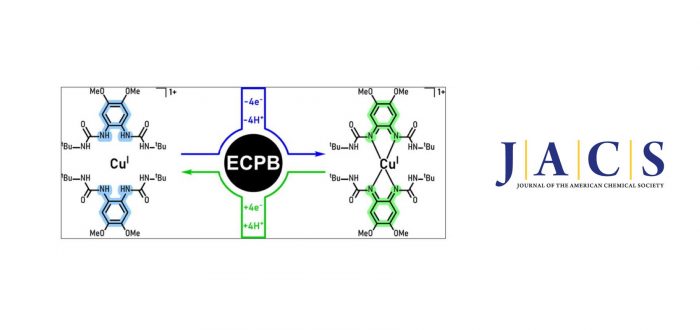Dr. Mursaleem Ansari has recently become a new member of the Institute of Computational Chemistry and Catalysis (IQCC). Dr. Ansari did his PhD at the Indian Institute of Technology Bombay on Mechanism of C-H and C=C activation by Mono and Dinuclear FeIV=O Species Using Density Functional Theory under the supervision of Prof. Gopalan Rajaraman in 2021. He has
- sec.iqcc@udg.edu
- +34 972 41 83 57
Category: Marcel Swart news
Joint experimental/computational studies in chemistry provide new complementary insights which are unattainable by experimental or computational chemistry alone. This is confirmed once again by a recent paper in the Proceedings of the National Academy of Sciences USA by research groups of Prof. Que (Univ. Minnesota) and Prof. Swart (ICREA and Univ. Girona). They collaborated in understanding
A few times a year, the IQCC opens its doors and gives the opportunity to high-school students to know our work through exciting lectures and computational and experimental workshops. This provides the secondary school pupils the possibility to get a feel for the research and have real-time chemistry in their hands. Last 8th February, it
Next Monday will be the defense of the doctoral thesis of Frederico Martins, titled “Density functional theory to the rescue of transition-metal chemistry”, supervised by Prof. Marcel Swart from IQCC. Place: Sala de Graus de la Facultat de Lletres Date: Monday October 09th, 2023 Time: 11.00am We wish him good luck and all the best! Girona, October 2, 2023 For
Last 20th April took place the 30 years IQC(C) celebration. This wonderful moment was celebrated by a symposium and get-together in Girona. Schedule (Aula Magna, Science Faculty) 09.30h Opening by Honorific Director Prof. Ramon Carbó-Dorca and ViceRector Research Dr. Maria Pla de Solà-Morales Session 1: Chair: Lorenzo D’Amore 09.50h-10.15h Jordi Mestres – “From Similarity to
The Institute of Computational Chemistry and Catalysis (IQCC) of the University of Girona (UdG) is a worldwide reference unit in computational chemistry and catalysis that aims at carrying out groundbreaking research on predictive chemistry for catalysis, with special focus on the processes occurring at the confined space for the coming years. One of the pillars
Since 2015 the IQCC is organizing a Science Slam. On Tuesday April 25th the IQCC organizes the seven edition to show the most representative research projects of the Institute to a wide audience. The research carried out within each of the research teams of the IQCC will be briefly summarized by the PIs (2 minutes).
Transition-metal-mediated reductive coupling of nitric oxide (NO(g)) to nitrous oxide (N2O(g)) has significance across the fields of industrial chemistry, biochemistry, medicine, and environmental health. Herein, we elucidate a density functional theory (DFT)-supplemented mechanism of NO(g) reductive coupling at a copper-ion center, [(tmpa)CuI(MeCN)]+ (1) {tmpa = tris(2-pyridylmethyl)amine}. At -110 °C in EtOH (<-90 °C in MeOH), exposing 1 to NO(g) leads
In this research article, we describe a 4H+/4e– electron-coupled-proton buffer (ECPB) based on Cu and a redox-active ligand. The protonated/reduced ECPB (complex 1: [Cu(8H+/14e–)]1+), consisting of CuI with 2 equiv of the ligand (catLH4: 1,1?-(4,5-dimethoxy-1,2-phenylene)bis(3-(tert-butyl)urea)), reacted with H+/e– acceptors such as O2 to generate the deprotonated/oxidized ECPB. The resulting compound, (complex 5: [Cu(4H+/10e–)]1+), was characterized
Since 2015 the IQCC is organizing a Science Slam. Next week on Thursday May 12th the IQCC organizes the sixth edition to show the most representative research projects of the Institute to a wide audience. The research carried out within each of the research teams of the IQCC will be briefly summarized by the PIs










